Dental Clinic vs. Private Practice Compared

Private Practice vs Corporate Dentistry
When comparing dental care options, understanding the differences between private practices and corporate dentistry is essential. Each setting has its own characteristics that can affect patient experience and treatment quality.
Understanding Dental Ownership
Corporate dentistry is typically owned by larger entities such as corporations, private equity firms, or extensive dental groups. These organizations often focus on operational efficiency, profitability, and volume of patients seen. This business model is designed to provide cost-effective care that appeals to a wider audience. In contrast, private practices are owned and operated by individual dentists or small groups. This ownership structure allows for a more personalized approach to patient care, where treatment plans are tailored to individual needs and preferences (Apollo Beach Dentistry).
Private practice dentists have greater autonomy in their decision-making, allowing for flexibility in the services offered and how they're delivered. This personal touch can lead to better patient relationships and satisfaction, essential for fostering trust and open communication about dental health.
Patient Experience Differences
The atmosphere in a private dental practice tends to be more relaxed and intimate than in corporate dental centers. In private practices, patients often receive more focused attention, which enhances their comfort level during visits. These settings typically allow for more flexible scheduling and individualized treatment options (Apollo Beach Dentistry).
In contrast, corporate dental offices are structured to handle a higher volume of patients and may operate in a more clinical manner. The emphasis on efficiency can sometimes create a less personal experience, where patients might not see the same practitioner during successive visits, making it challenging to establish long-term relationships. This impersonal nature may lead to variability in patient expectations (All Smiles Dental Care).
The following table summarizes the key differences between private practices and corporate dentistry:
| Feature | Private Practice | Corporate Dentistry |
|---|---|---|
| Ownership | Independently owned by dentists | Owned by corporations or groups |
| Patient Relationships | Close, personalized interactions | Less personal, often clinical |
| Treatment Flexibility | Higher flexibility in treatment plans | Structured protocols, less flexibility |
| Atmosphere | Relaxed, comfortable | More impersonal and clinical |
| Patient Volume | Lower patient volume | Higher patient volume |
Patients seeking personalized care and stronger relationships with their dental provider may prefer private practices. Those who prioritize affordability and accessibility might find corporate dentistry more appealing. Ultimately, the choice depends on individual needs and preferences in dental care. For further insights on what to look for in a dental provider, consider reading about how to find the best dental clinic near you? and what to expect at your first dental visit?.
Pros and Cons of Private Practice
Private practices in dentistry offer distinct advantages and some challenges. Understanding these pros and cons can help patients make informed decisions regarding their dental care options.
Autonomy and Patient Relationships
One of the main benefits of private practice is the high level of autonomy that dentists experience. This independence allows them to make decisions regarding patient care without adhering to corporate protocols, which can lead to a more personalized treatment approach. Dentists in private practice often focus on developing long-term relationships with their patients, getting to know their health history, and providing tailored care that meets individual needs.
This close relationship fosters trust and enables dentists to better understand their patients' unique oral health requirements. According to dental professionals, private practices like Dr. Young's prioritize not rushing patients during appointments, treating them like family, and investing time in understanding their health history. This patient-centric approach creates a welcoming environment that contrasts sharply with the often impersonal nature of larger corporate or dental chain practices.
| Advantages of Private Practice | Description |
|---|---|
| Autonomy in Care | Dentists make decisions tailored to patient needs. |
| Personal Relationships | Longer, trust-building interactions with patients. |
| Flexibility in Treatment Plans | Care plans can be customized for each individual. |
Business Responsibilities vs. Benefits
While private practice offers autonomy, it also comes with specific business responsibilities that can impact dentists’ focus on patient care. Managing a practice involves overseeing administrative tasks, billing, marketing, and complying with various regulations. These responsibilities can detract from the time available for patient care, potentially leading to stress among dentists.
In contrast, corporate dental practices might offer comprehensive benefits such as health insurance, retirement plans, and paid vacation days, which can be attractive for those seeking financial security. However, the range and consistency of benefits in private practice can vary from one office to another. Dentists who own private practices need to balance the administrative workload with their commitment to providing excellent patient care.
| Factors to Consider in Private Practice | Description |
|---|---|
| Business Management | Dentists handle administrative duties. |
| Potential Stressors | Balancing patient care with business responsibilities. |
| Benefit Variability | Benefits may differ significantly between private practices. |
For more information on the differences between dental clinics and private practices, refer to our article on private dental clinic and chain clinic. Exploring these aspects can help individuals understand what to expect when choosing their dental care provider.
Dental Clinics vs Private Practices
In considering the differences between dental clinics and private practices, two important factors come into play: the cost of services and the approach to patient care.
Dental Services Cost Comparison
Dental clinics often feature lower costs for treatments compared to private practices. This price difference is not indicative of inferior quality; rather, it usually stems from the clinics serving areas with limited access to dental services or being associated with educational institutions. As a result, patients receive treatment from student doctors under the supervision of experienced faculty members.
For example, the average treatment costs at institutions like Penn Dental Medicine can be 50%-70% lower than those typically found at private practices (Penn Dental Medicine).
| Service Type | Dental Clinic Cost | Private Practice Cost |
|---|---|---|
| Routine Checkup | $50 - $75 | $100 - $200 |
| Dental Cleaning | $30 - $60 | $80 - $150 |
| Fillings | $50 - $100 | $150 - $300 |
| Extraction | $75 - $150 | $150 - $400 |
Patient Care Approach
The approach to patient care is distinctly different between dental clinics and private practices. Private practices tend to provide more personalized care. According to Apollo Beach Dentistry, private practices offer tailored services that meet the unique needs of individual patients. Practitioners in these settings focus on building relationships with their patients, emphasizing the importance of understanding their health history and spending sufficient time with each patient.
In contrast, dental clinics, particularly educational ones, may experience longer wait times and treatment durations as patients are treated by student doctors. However, these clinics focus on reducing financial and physical stress for patients by providing essential care at lower prices (Penn Dental Medicine). The close attention provided by motivated students can lead to thorough care, albeit at a potentially slower pace.
Individuals seeking a balance between cost and personalized service may find it beneficial to weigh these factors when deciding between a dental clinic and a private practice. It is important to consider what aspects of care matter most to them, whether it's budget-friendly services or a strong patient-doctor relationship. For further insights on finding quality care, visit our guide on how to find the best dental clinic near you?.
Dental School Clinics vs Private Practices
When comparing dental school clinics and private practices, several key factors emerge, including educational institution benefits and the comprehensive services offered.
Educational Institution Benefits
Dental clinics affiliated with educational institutions, such as Penn Dental Medicine, typically provide services at a significantly lower cost than private practices. On average, patients can expect to pay 50%-70% less for dental treatments at these clinics compared to private practices. This cost effectiveness is partly due to the mission of serving communities with limited access to dental care and the educational model that employs student doctors under the supervision of experienced faculty (Penn Dental Medicine).
Patients at these clinics may encounter longer wait times and treatment durations as students gain hands-on experience. However, they receive personalized attention from highly motivated student dentists. This model fosters a learning environment where students can apply current dental practices while providing care to patients at reduced prices.
Comprehensive Dental Services
Another significant advantage of dental school clinics is the breadth of services available under one roof. Clinics like Penn Dental Medicine offer an extensive range of dental procedures, from routine check-ups to specialized treatments. The services provided include:
- Dental and physical examinations
- Screenings and testing
- Customized treatment plans
- Education on proper oral hygiene
- Scheduling of regular checkups
The integration of multiple specialties allows patients to access various forms of dental care without needing multiple referrals or appointments. Moreover, these clinics utilize advanced technology and contemporary treatment methods, ensuring that patient care aligns with the latest developments in dental medicine (Penn Dental Medicine).
For more insights on the differences between clinics and practices, consider checking out our article on private dental clinic and chain clinic for additional context on service options.
Dental Support Organizations (DSOs) Overview
Dental Support Organizations (DSOs) play a significant role in modern dentistry by providing a variety of services that support dental practices. Understanding their operations can help clarify the differences in care between traditional private practices and those affiliated with DSOs.
Non-Clinical Service Support
DSOs offer dentists numerous non-clinical services, which significantly alleviate the administrative burden associated with running a dental practice. Some of the key non-clinical services provided by DSOs include:
| Service Type | Description |
|---|---|
| Facility Maintenance | Ensures the dental office is clean, safe, and functional. |
| Human Resources | Provides staffing solutions, payroll management, and employee training. |
| Compliance | Handles legal and regulatory compliance issues. |
| Marketing | Develops marketing strategies to attract new patients. |
| Insurance Support | Assists with claims processing and participation in various insurance plans. |
| Continued Education | Offers training and resources for dentists to enhance their skills. |
By managing these operational aspects, DSOs enable dentists to concentrate more on patient care rather than administrative tasks. About 13.3% of female dentists and 8.7% of male dentists opt to join a DSO rather than manage a private practice alone or with a small group (Pacific Dental Services).
Operational Benefits for Dentists
In addition to non-clinical support, DSOs provide operational benefits that enhance the working environment for dentists. These benefits include:
- Access to New Technology: Dentists can use cutting-edge dental equipment without significant initial investments.
- Training and Development: Ongoing training helps improve skill levels and keep staff updated on the latest dental practices.
- Vendor Discounts: DSOs negotiate discounts with suppliers, decreasing operational costs for the dental practices they support.
- Flexibility in Scheduling: Dentists can often benefit from scheduling assistance, allowing them to better manage their time.
- Increased Affordability: Many DSOs provide more affordable high-quality services by leveraging collective bargaining.
These advantages help streamline operations within dental practices affiliated with DSOs, leading to increased productivity and patient satisfaction. For more information on what services a good dental clinic should offer, refer to our article on what services should a good dental clinic offer?.
Low-Cost Dental Centers vs Private Practices
When considering options for dental care, individuals may weigh the differences between low-cost dental centers and private practices. Each option presents distinct advantages in areas such as access to specialists and personalization in care.
Access to Specialists
Low-cost dental centers typically provide patients with access to board-certified specialists on staff. This allows for easy access to critical care in emergencies, as well as specialized services like oral surgery and orthodontics. Many of these clinics accept walk-in patients, making it convenient for those needing immediate attention. In contrast, private practices may have fewer specialists available on-site, which can result in longer wait times for specialized care.
To compare the accessibility of specialists between these facilities:
| Feature | Low-Cost Dental Centers | Private Practices |
|---|---|---|
| Board-Certified Specialists | Yes | Varies by practice |
| Emergency Services | Easily accessible | May require appointments |
| Specialization Services | Oral surgery, orthodontics | Varies, often needs referral |
| Walk-In Availability | Commonly accepted | Typically requires an appointment |
Both options have their merits, but low-cost dental centers can offer a more immediate response to dental needs that require specialized attention (1Dental).
Personalization in Patient Care
Private practices often pride themselves on the strong patient-dentist relationship they cultivate. These practices tend to provide a more personalized experience due to lower patient volumes, allowing for longer appointments and tailored treatment plans. Patients may feel more valued and receive individualized attention throughout their dental care journey.
In contrast, while low-cost dental centers can offer shorter treatment times and access to specialists, they may not provide the same level of personalized care. The focus on efficiency and volume can sometimes lead to a more transactional relationship between patients and staff.
Here’s a summary of the personalization aspect:
| Feature | Low-Cost Dental Centers | Private Practices |
|---|---|---|
| Appointment Length | Generally shorter | Typically longer |
| Patient-Dentist Relationship | Often more transactional | Stronger, more personal |
| Tailored Treatment Plans | May vary | Usually customized |
| Staff-Patient Interaction | High patient volume | Lower patient volume enables better interaction |
Both environments serve their purpose in providing dental care. While low-cost dental centers allow for efficient access to specialists and treatments, private practices offer a more personalized approach to patient experience. To further explore the best dental care options, learn about what services should a good dental clinic offer?.
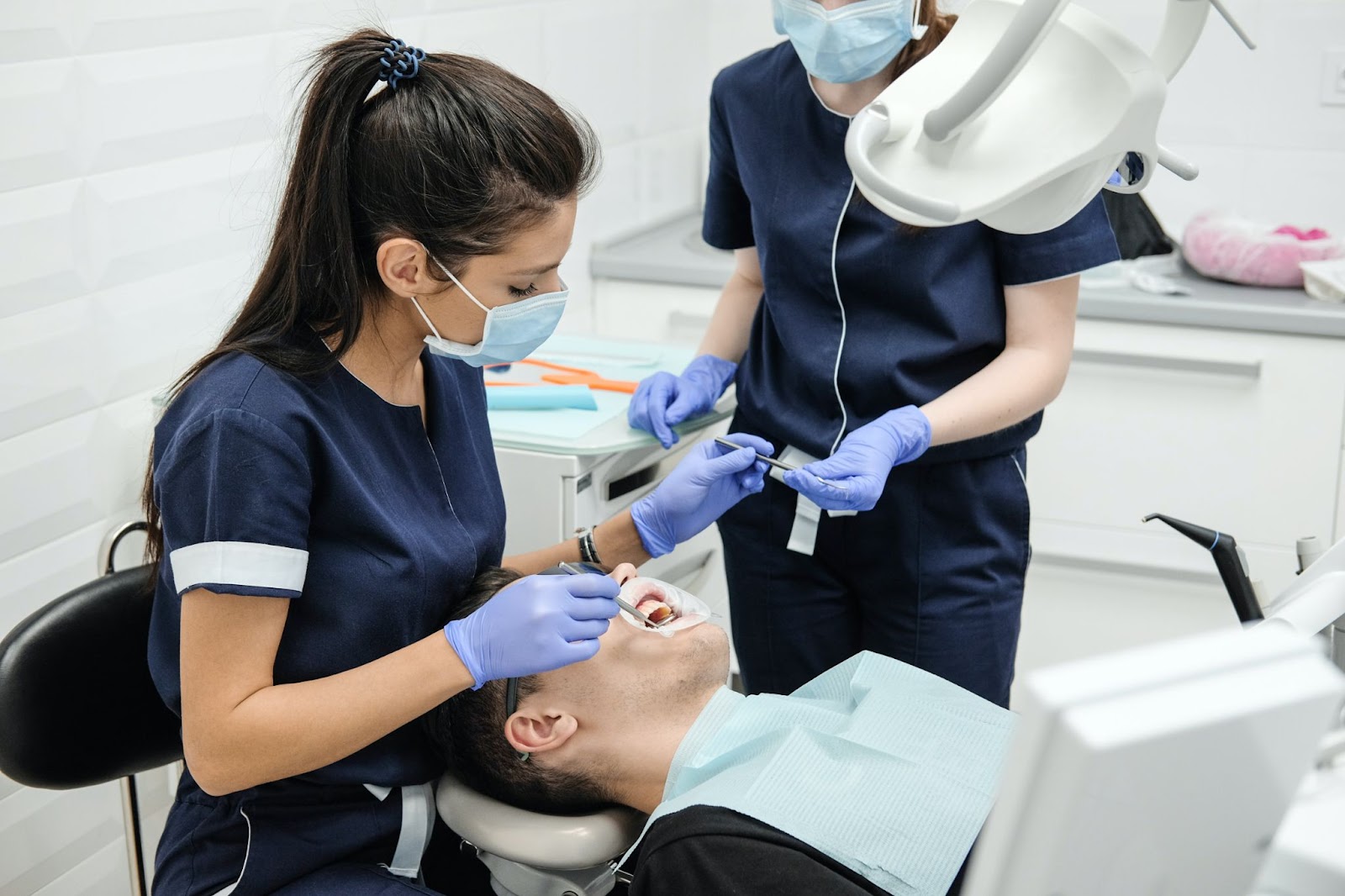





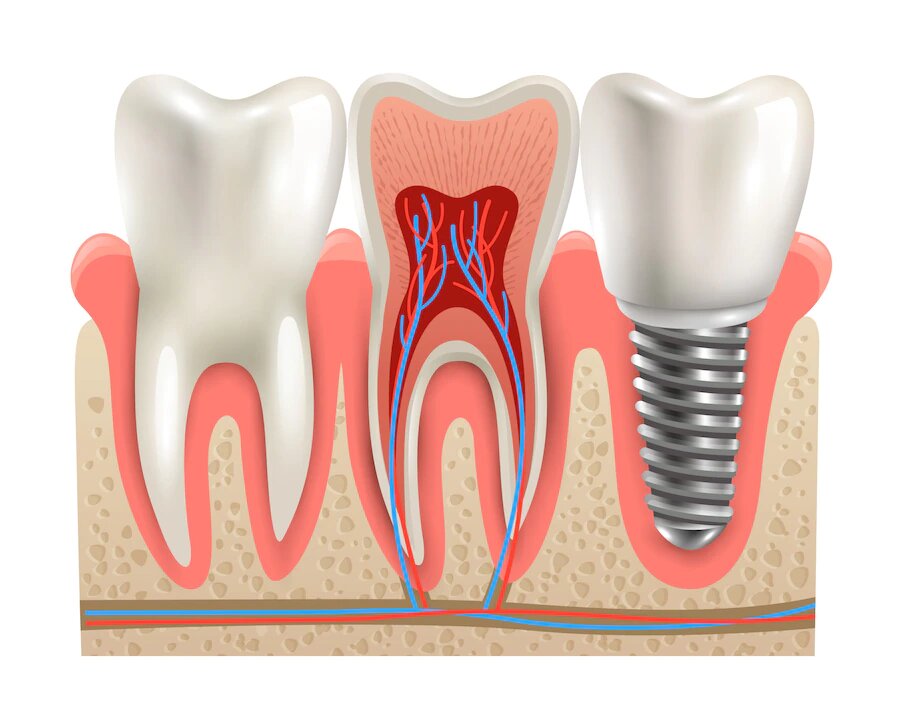




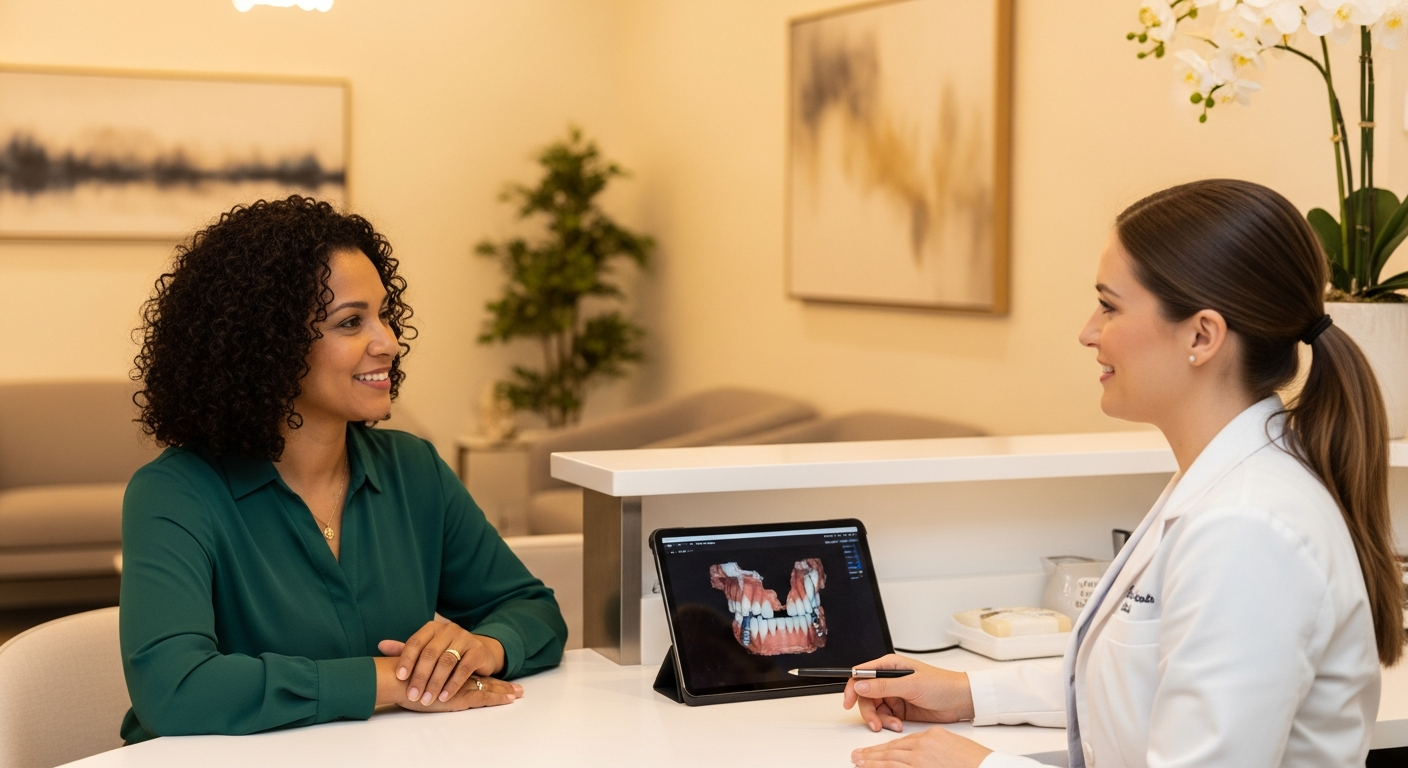





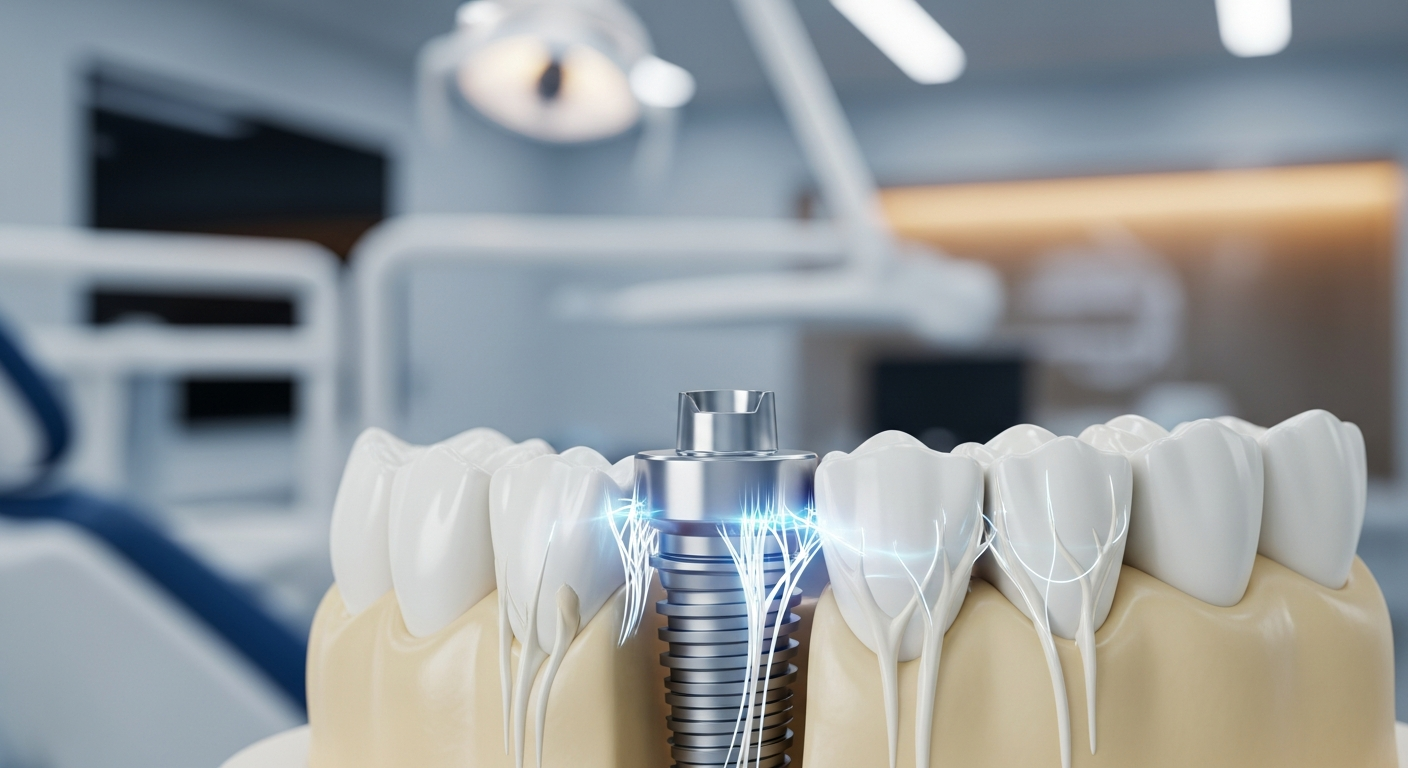






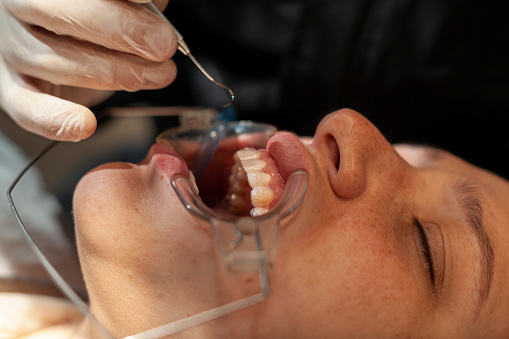

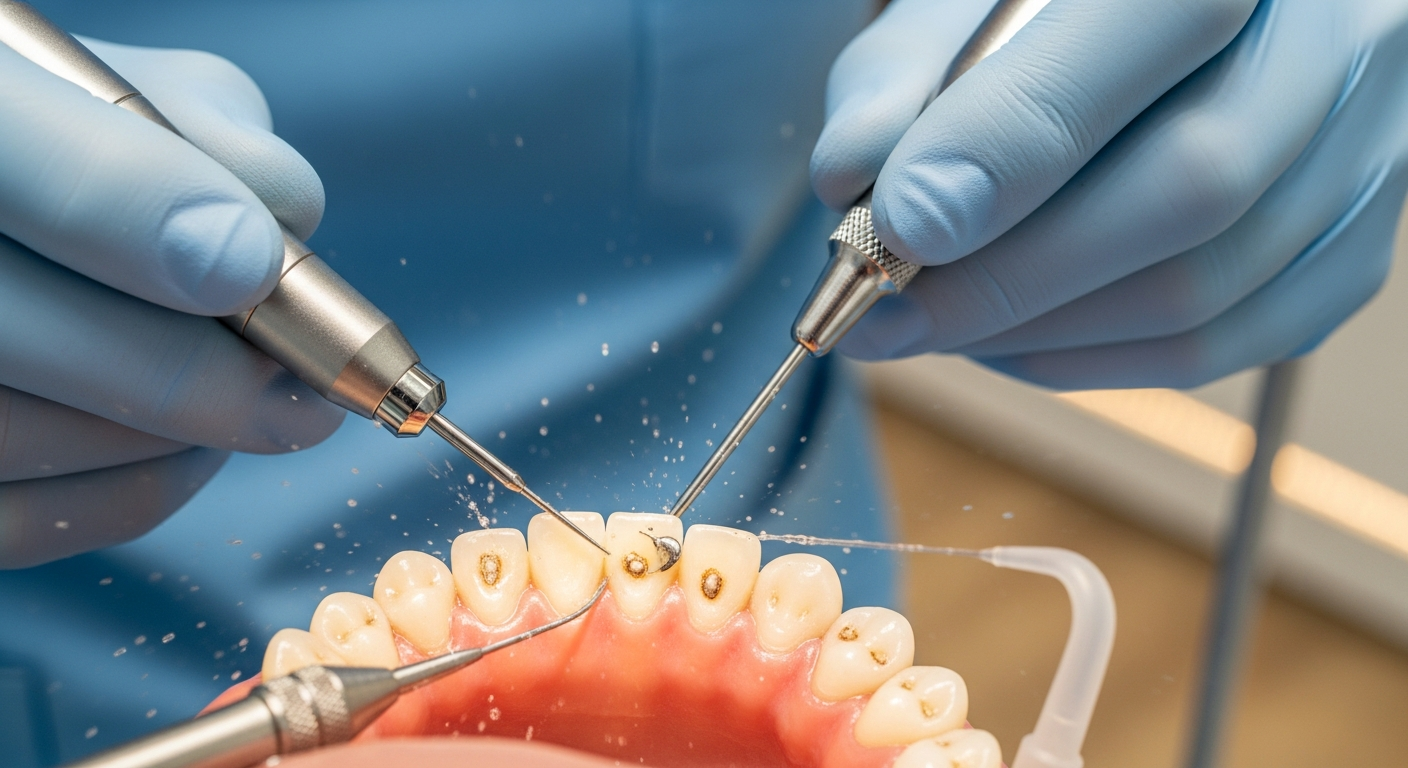

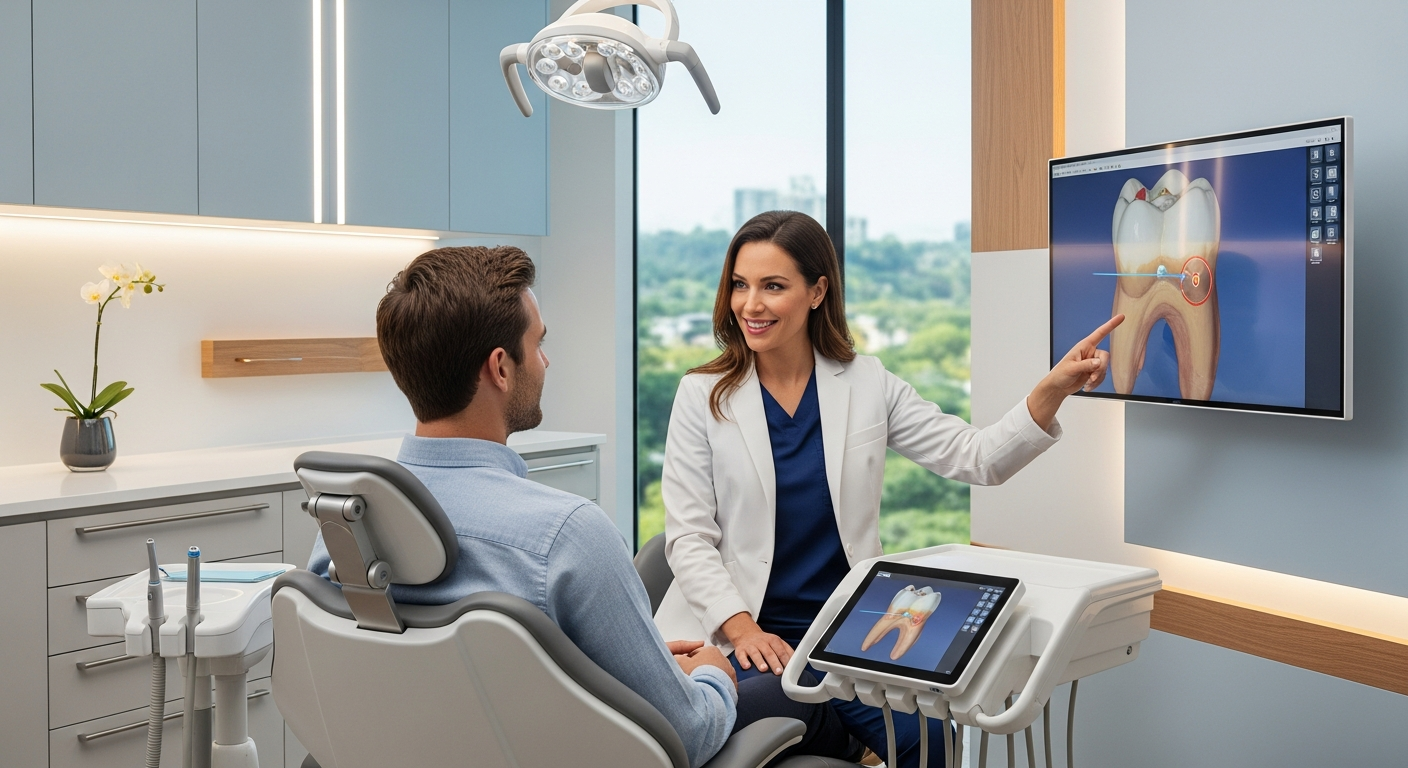
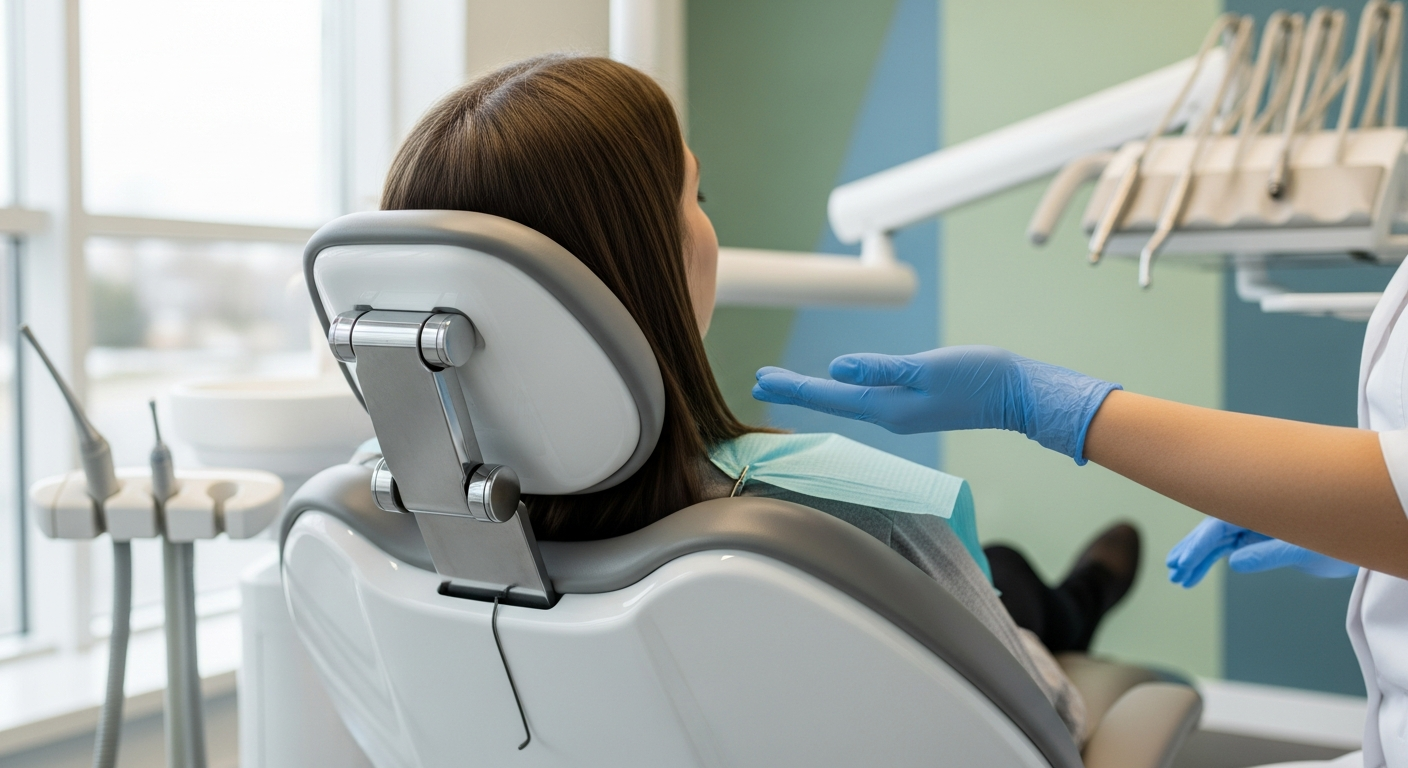

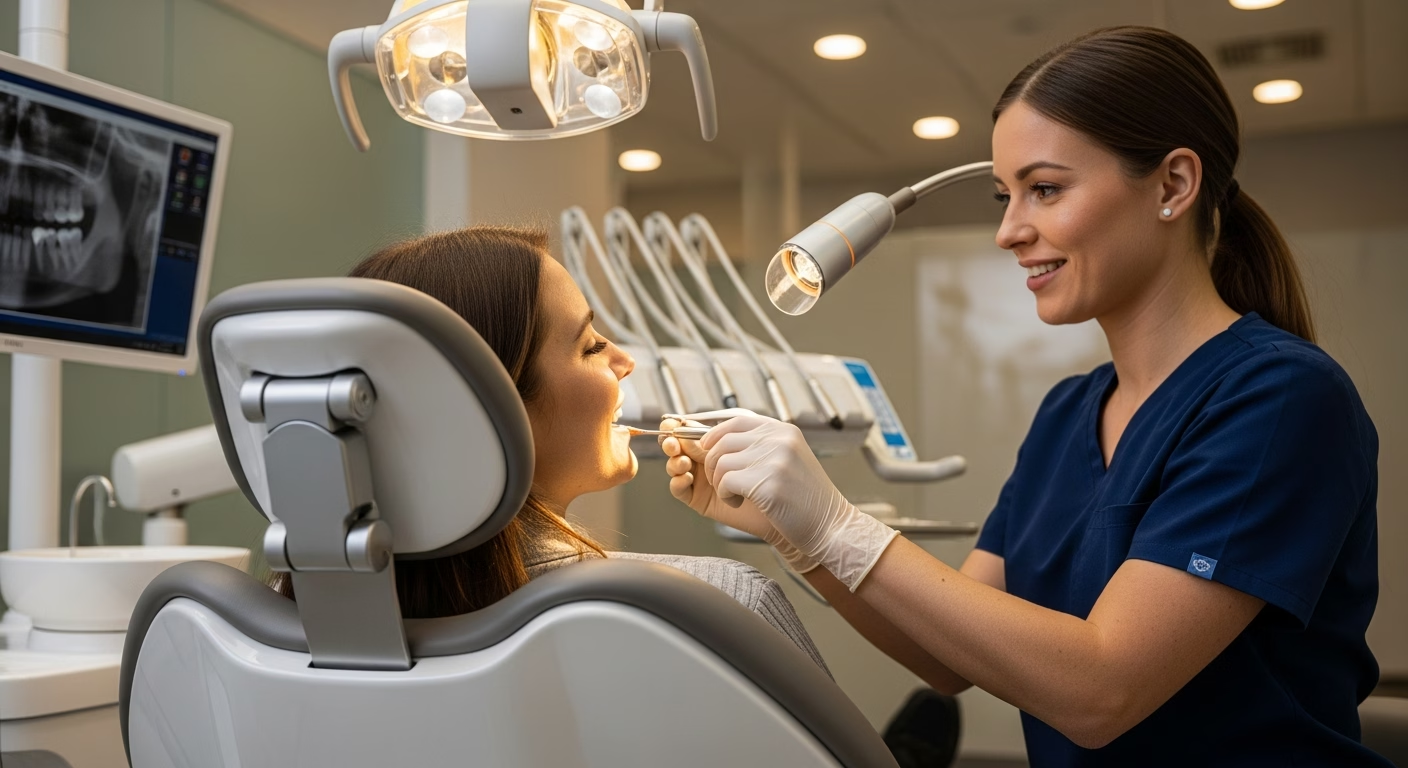
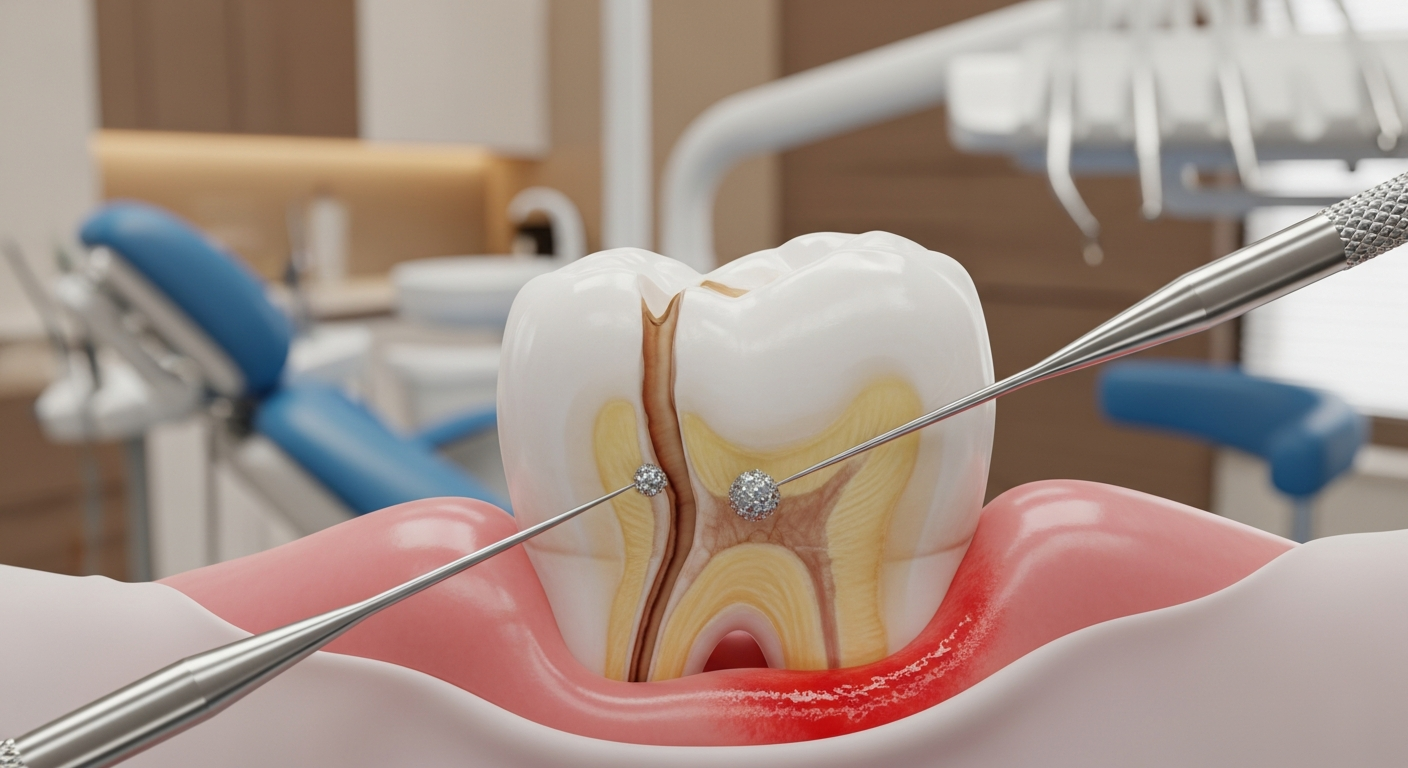




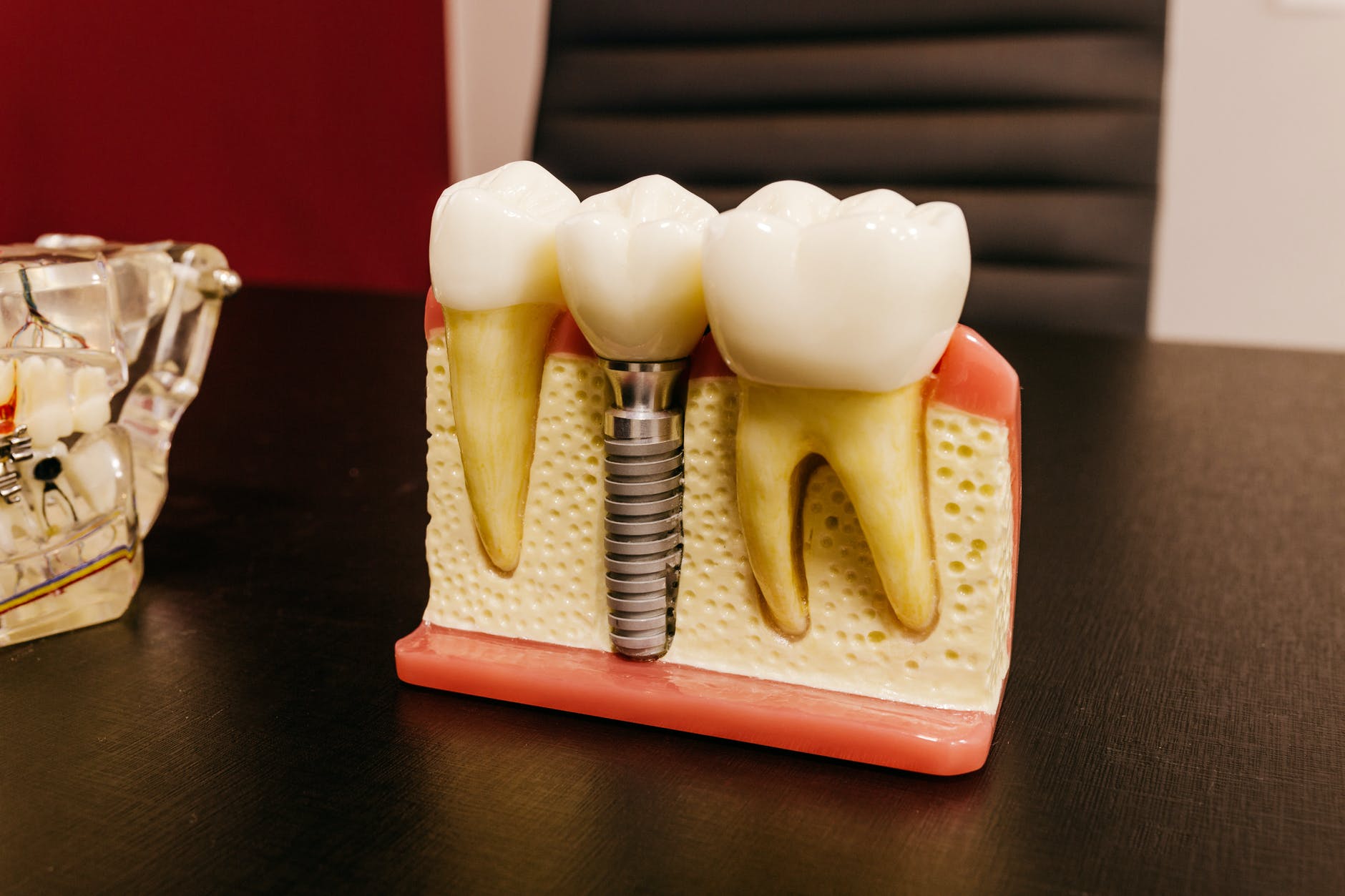


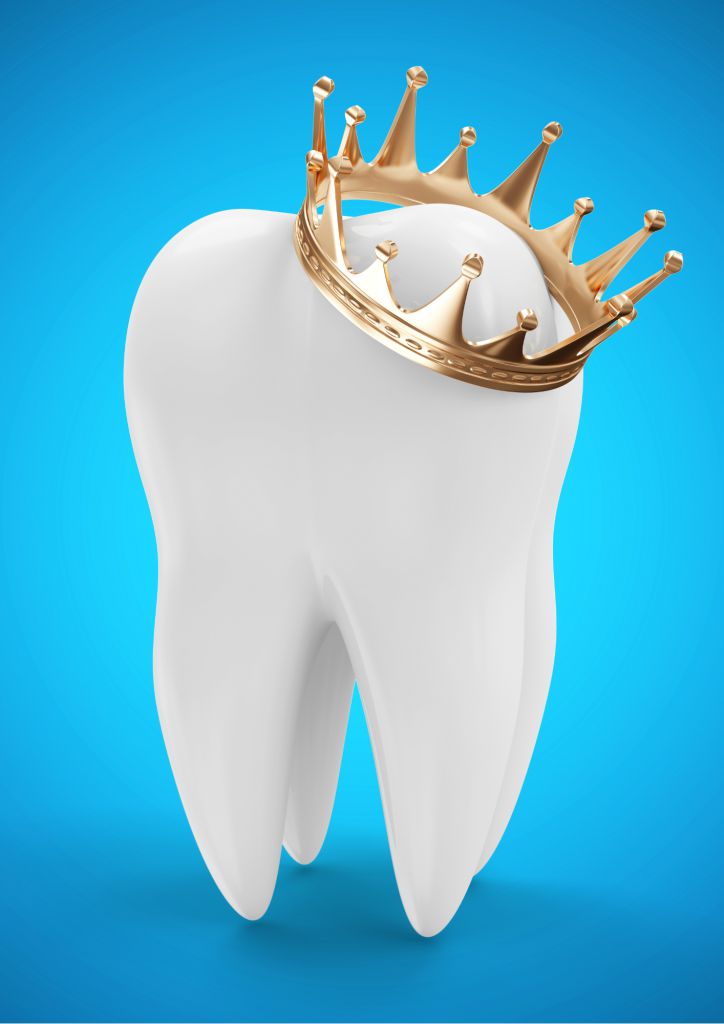







.avif)


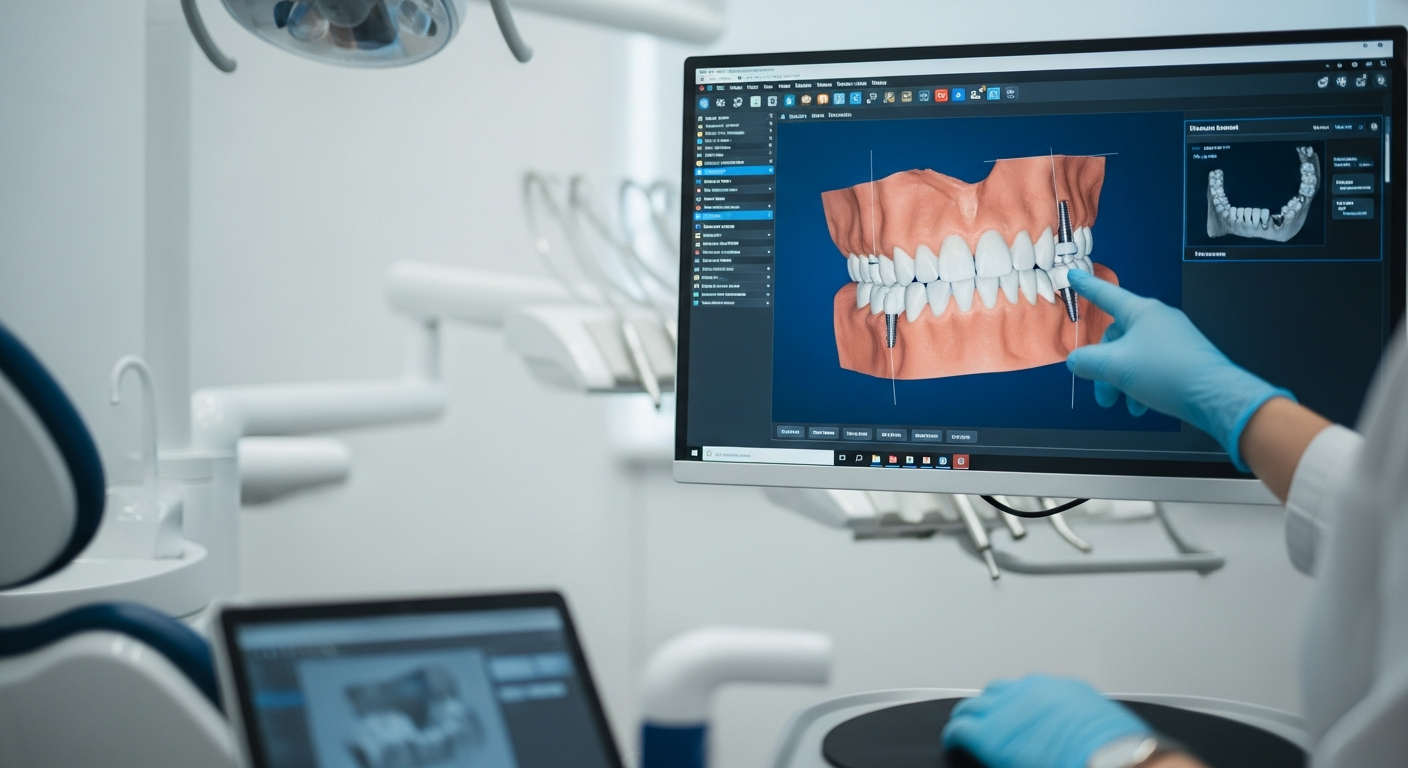



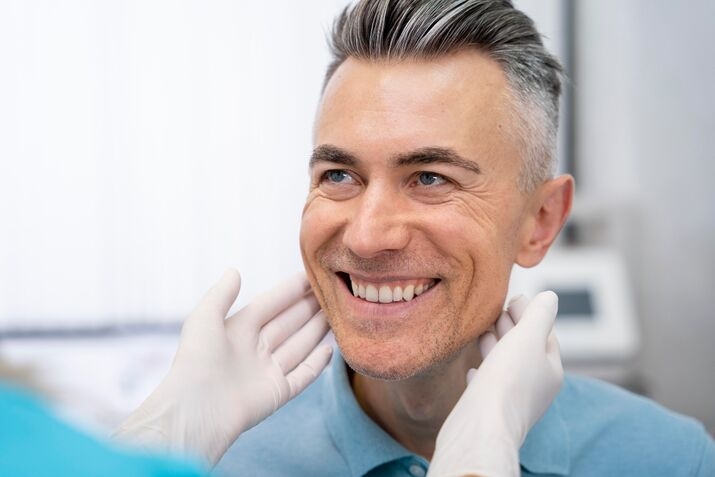
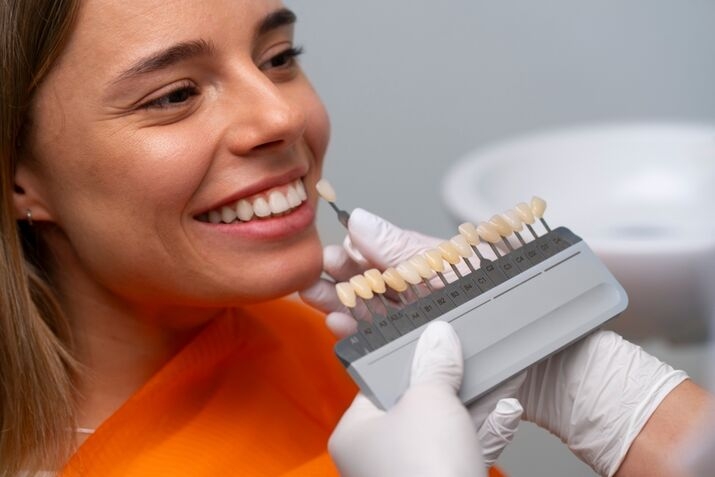


.jpg)


















.avif)


















.jpg)



